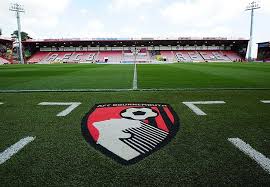By David Owen
March 29 – The financial strain inherent in maintaining a highly competitive Premier League squad while based in a tiny stadium appears to have started to show at AFC Bournemouth.
The Russian-owned south coast club, known as the Cherries, fell into the red during the year to end-June 2018, posting a loss of £10.9 million, against a £14.6 million pre-tax profit a year earlier.
With a stadium capacity of only around 11,000, Bournemouth are arguably even more dependent on Premier League TV and performance money than most of their direct rivals. And with no new league broadcasting deal and manager Eddie Howe’s men finishing slightly lower in the table than in 2016-17, the club’s Premier League income dipped by nearly £5 million to £119.2 million.
This still amounted to 88% of overall turnover of £134.9 million – down from £136.5 million a year-earlier, even though the comparative 2016-17 period only included eleven months. The club did crank up sponsorship and advertising revenue considerably, from £3.6 million to £6.8 million.
The deterioration in profitability was attributable very largely to a £30 million-plus increase in staff costs to £101.9 million. The cash flow statement shows that the club spent £37.9 million on players during the year, while raking in only £6.3 million.
Performance was helped by a nearly £3 million increase to £5.2 million in proceeds brought in from players on loan. There was also a £2.6 million exceptional item. This followed settlement of a dispute with the English Football League over a £7.6 million financial fair play charge incurred in 2014-15. The amount of the settlement was £4.75 million, so considerably less than the original charge.
There was an early warning in October that the financial pressures of life in the top flight might be making their presence felt. This took the form of a statement giving it to be understood that plans for a new stadium had been put on hold and an acknowledgement of having been “overly optimistic” that such a venue would be completed by summer 2020.
Very much in the Cherries’ favour, however, is a bright young squad of players whose value in the transfer market almost certainly outstrips that on the balance-sheet by a wide margin. It would be no surprise to see one or two of these leave in big money moves during the close season.
The financial report also discloses that Russian investor Maxim Demin took full ownership of the club in January, via the British Virgin Islands-registered entity AFCB Enterprises Limited. AFCB acquired shares previously owned by Peak6 Football Holdings.
Possibly as a consequence of this, two directors – J.Coppoletta and M.Hulsizer – resigned on the same date, 28 January 2019, leaving four directors in situ. Over the year to end-June 2018, the highest-paid director received £1.32 million.
The repayment date of £16.7 million of interest-free shareholder loans was extended by two years to August 2020. Debt owed to both AFCB and Peak6 was higher at 30 June 2018 than the prior year-end. At this date, the club owed AFCB £45.66 million and Peak6 £23.66 million. Both amounts are non-interest bearing.
Contact the writer of this story at moc.l1745024373labto1745024373ofdlr1745024373owedi1745024373sni@n1745024373ewo.d1745024373ivad1745024373

